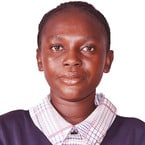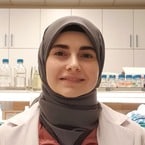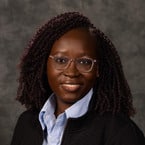Global Scholar-in-Training Awards Recipients
The American Association for Cancer Research (AACR) is proud to offer Global Scholar-in-Training Awards (GSITA) to support the career development of meritorious early-career scientists from countries building cancer research capacities. The GSITA program, now in its seventh year, will bring promising scientists from 11 countries—Argentina, Brazil, Ethiopia, Ghana, India, Jordan, Malaysia, Nigeria, Pakistan, Turkey, and Zambia—to participate in AACR Annual Meeting 2025 in Chicago.














